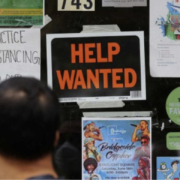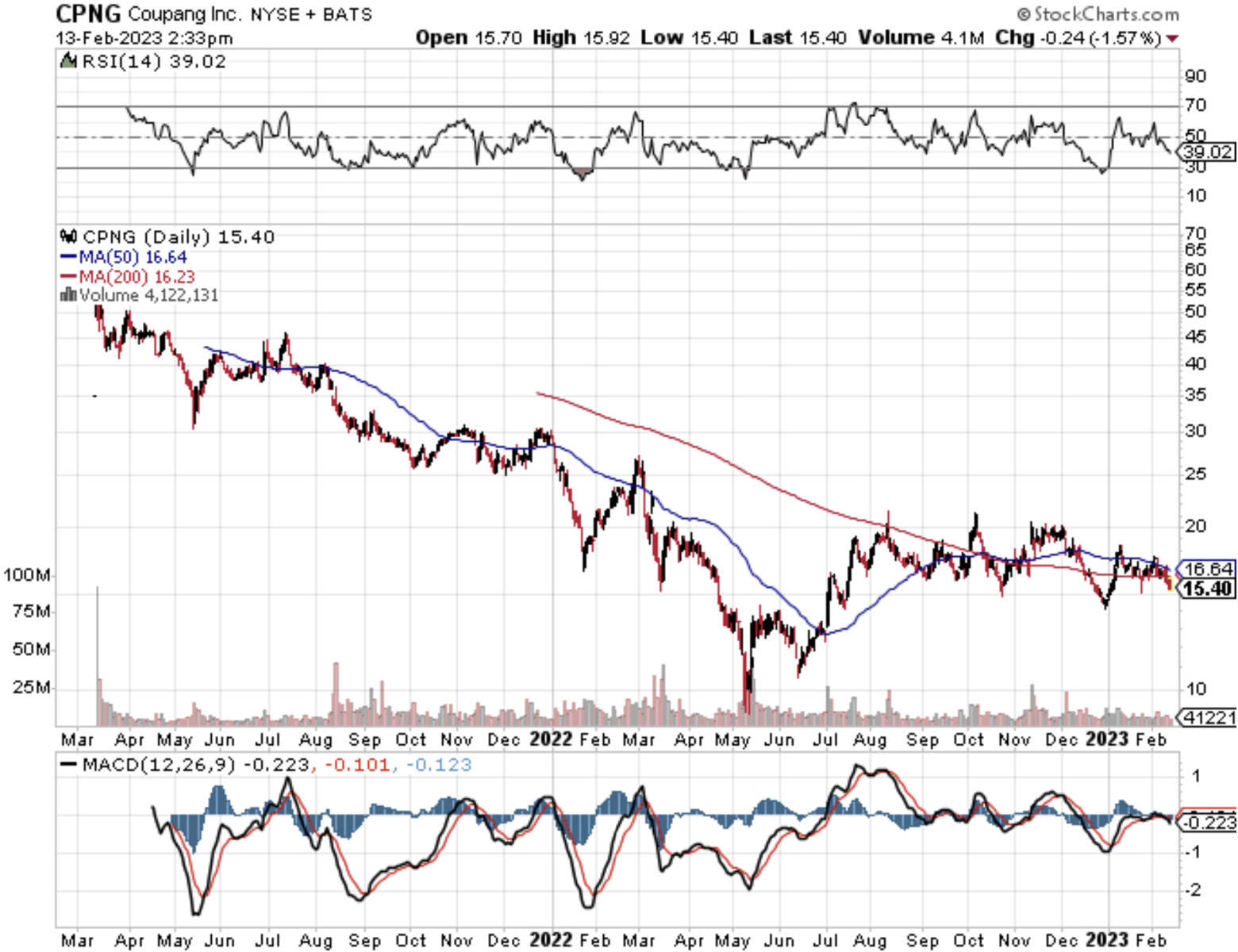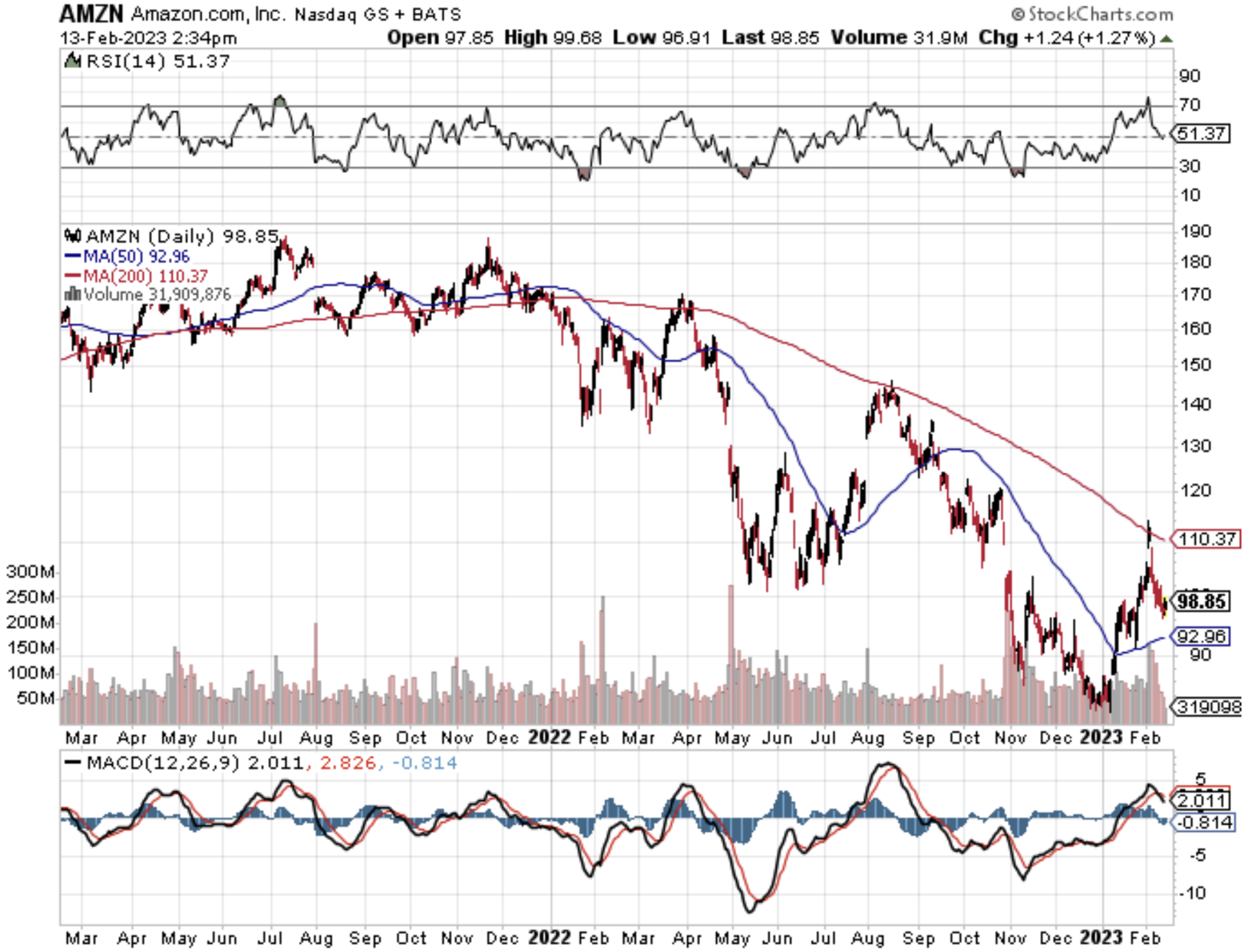Ecommerce Takes A Back Seat
American ecommerce companies are certainly feeling the pinch of high inflation as many US consumers tighten up their purse strings.
Ecommerce was one of the few growth engines for tech before 2020, now it’s harder to move the needle for many subsectors.
Just take a look at the giant ecommerce company Amazon (AMZN) whose stock price was higher in August 2018 compared to today.
Between now and 2018, Amazon experienced a pulsating melt-up due to a business boom, low interest rates, and positive global growth.
On the way down, the reverse has taken place.
We, as investors, just cannot assume tech will go from the bottom left to the top right anymore.
So if ecommerce companies of Amazon’s ilk are struggling to navigate tighter conditions, imagine how bad it is for ecommerce flagship companies in an Asian third-world backwater like South Korea.
The ecommerce company I am talking about is Coupang (CPNG), which I’ve been highly negative of since public inception, and rightly so.
CPNG's share price has done nothing but drop since its IPO from its $50 peak and now stands at $15 after bottoming out at $9.
What next for CPNG?
CPNG the South Korean e-commerce pioneer has lost billions of dollars since its inception but is rolling out an army of robots at fulfillment centers in the hope of achieving profitability.
They burned cash by building distribution centers throughout South Korea that could help it push the boundaries of speedy delivery with a broad selection.
Now the company is almost breaking even, with analysts projecting it will turn a profit for the second straight quarter and then report its first annual operating profit in 2023.
Coupang has used private venture capital to fund this expansion combined with a 2021 initial public offering to build logistics domestically.
Coupang is also pushing to expand new markets in Taiwan and Japan. I see that as a hard endeavor because legacy ecommerce like Rakuten is quite entrenched there.
I think they will be unable to outmaneuver local competition.
Strategies like cash burning to seize market share don’t work anymore because of the high cost of capital.
CPNG needs to optimize what it can in South Korea even if the country presides over one of the worst demographics in the world, with the average age of customers approaching the age of nursing home residents.
CPNG has more than 100 fulfillment and logistics centers in South Korea, but no footprint overseas.
Barreling into mature markets is a marginal strategy for CPNG today because they are 10 years too late.
Yet, I do really like what they are doing on the automation front domestically integrating automated robots into their operation.
The lack of workers and consumers in South Korea is another headwind due to poor demographics.
Externally, they also face various headwinds from the global backdrop souring.
I do believe in the short term as tech equities benefit from the disinflation narrative, there is a narrow path to a higher market share for CPNG to around $25 per share in 2023.
Anything higher I would avoid because it’s not worth paying a premium for this ecommerce company.
Relying on a “tide lift all boats” strategy is not ideal in today’s tech world, because that isn’t for sure anymore.
Long term, my assessment of CPNG is less rosy. This could be a good buyout ticket for a bigger fish because, at some point, they will realize that they were late to the party and might as well sell it off for whatever it's worth.





